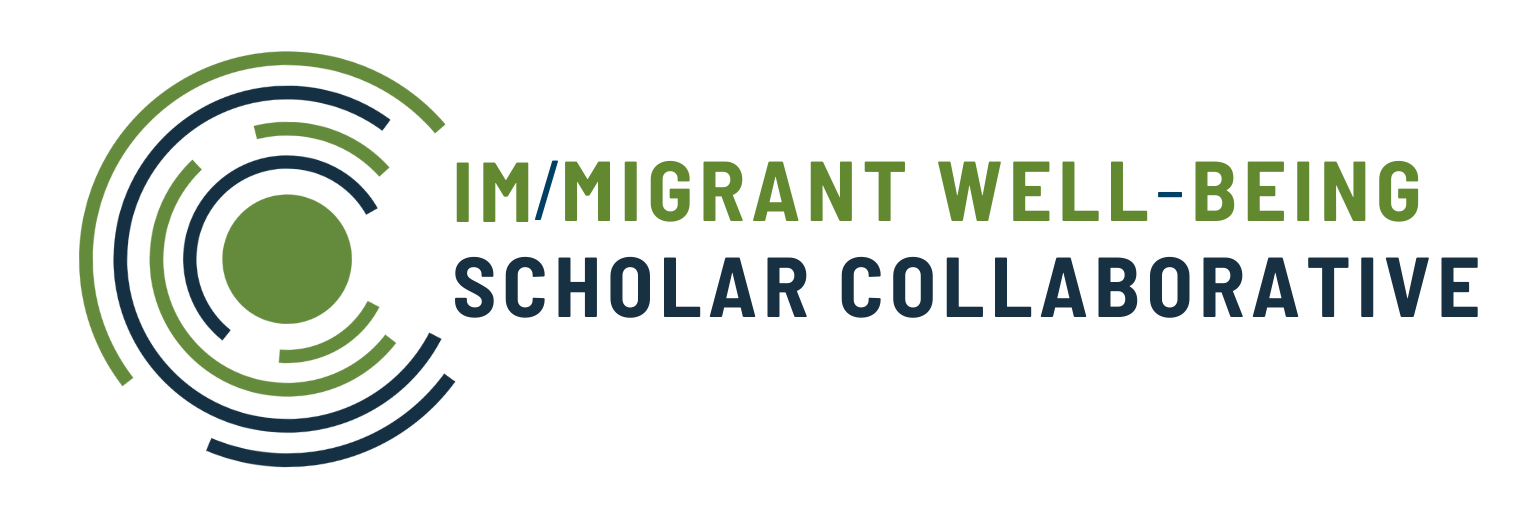Im/migrants often face serious obstacles to accessing healthcare, such as lacking health insurance, language barriers, and high costs. These barriers can result from differences in legal status, having a low-income status, or working in low-paying industries. These challenges to receiving health care have consequences for both the mental and physical well-being of im/migrants.
As policymakers work to address barriers to accessing healthcare in the U.S., it’s important to look at what research tells us about how im/migrant well-being is impacted and ensure the expansion of access. The Im/migrant Well-Being Scholar Collaborative has identified five findings on the intersection of im/migrants, healthcare, and well-being from empirical research:
1. Fear and uncertainty of legal consequences under state-level immigration policies, like Florida’s SB1718, can lead im/migrants to avoid seeking medical care.
A new report from the Im/migrant Well-Being Research Center at the University of South Florida examined the social, economic, and psychological effects of Florida’s SB 1718 law on immigrants and U.S.-born adult children of immigrants living in the state. The study found that since SB 1718’s passing, 66% of non-U.S. citizen immigrants surveyed hesitated to seek medical care, such as visiting the doctor’s office, emergency room etc., due to concerns and fears of deportation. The survey also found that among non-U.S. citizen respondents, 74% reported being worried about their ability to get medical care if needed.
These impacts are not only limited to im/migrants themselves. 27% of U.S. citizens surveyed also reported hesitation to seek care and 39% of U.S. citizens also expressed concern over the ability to access services. These results highlight the “spillover effects” that the legislation has had on mixed-status families. These results were also accompanied by negative effects on the psychological and mental well-being of im/migrants and their families, highlighting the dangers of these punitive measures.
2. More direct encounters with law enforcement and increased police surveillance can lead im/migrants to put off accessing the healthcare they need.
Empirical research into “chilling effects,” wherein im/migrants may avoid seeking care or accessing health care benefits due to fear of immigration enforcement, demonstrates that immigration enforcement policies and increased policing can become barriers to immigrants accessing health care.
A recent study on Latinx and Asian immigrants in California found these communities reported experiencing high levels of policing, surveillance, and encounters with law enforcement. These encounters with law enforcement and surveillance included experiences with having been watched, stopped, or asked to prove citizenship by law enforcement. They also included having been deported, knowing someone who has been deported, or having had to stay indoors to avoid law enforcement. While it found that Latinx immigrants reported the highest levels of enforcement experiences, the study demonstrated that for both groups, immigrants’ encounters with enforcement and policing were associated with increased odds of delaying care and accessing health care services.
3. Im/migrants are disproportionately likely to face higher health risks, live in poverty and be uninsured.
Im/migrants are disproportionately concentrated in low-wage employment industries and sectors–such as farming, construction, and service jobs. Accordingly, research indicates that immigrant workers are often not offered or covered by health insurance provided by an employer. This contributes to immigrant workers experiencing higher poverty, uninsured rates, and consequently not having access to basic healthcare. Additionally, the research also highlights that noncitizen or undocumented immigrant workers face higher adverse health risks on the job and are more vulnerable to workplace abuses, health risks, and poor working/living conditions. When coupled with a lack of access to healthcare, these workforce vulnerabilities pose serious consequences and risks to their well-being.
Research also highlights that noncitizen or undocumented immigrant workers face higher adverse health risks on the job and are more vulnerable to workplace abuses, health risks, and poor working/living conditions. When coupled with a lack of access to healthcare, these workforce vulnerabilities pose serious consequences and risks to their well-being.
4. During the COVID-19 pandemic, im/migrants had low utilization rates of medical services and telehealth resources and were less likely to visit the doctor or emergency room.
A recent study examined disparities in healthcare access and utilization according to immigration status during the COVID-19 pandemic. The study’s findings indicated that compared to U.S.-born citizens, non-citizen immigrants had used healthcare and telehealth services at lower rates during the pandemic. The study found that non-citizen immigrants were more likely to delay medical care and less likely to visit a doctor or emergency room. Additionally, the results indicated that non-citizen immigrants were less likely to have access to or do telehealth visits during COVID-19.
5. Legal statuses like DACA and citizenship can increase healthcare access and boost well-being!
Legal status has a protective effect on immigrant well-being – immigrants with citizenship have better access to health care and fewer health disparities compared to non-citizens. For example, children of mothers protected from deportation by DACA had 50% fewer diagnoses of adjustment and anxiety disorder compared to those without such protections.
These findings offer insights into how immigrants and migrants in the United States experience a lack of access to healthcare. Understanding the disproportionate impacts of these issues on im/migrant communities across the country should be at the core of policy-making efforts when developing evidence-informed policies to improve health outcomes.
Prepared by Annabelle Manzo & Thomas Rachko, Jr.

